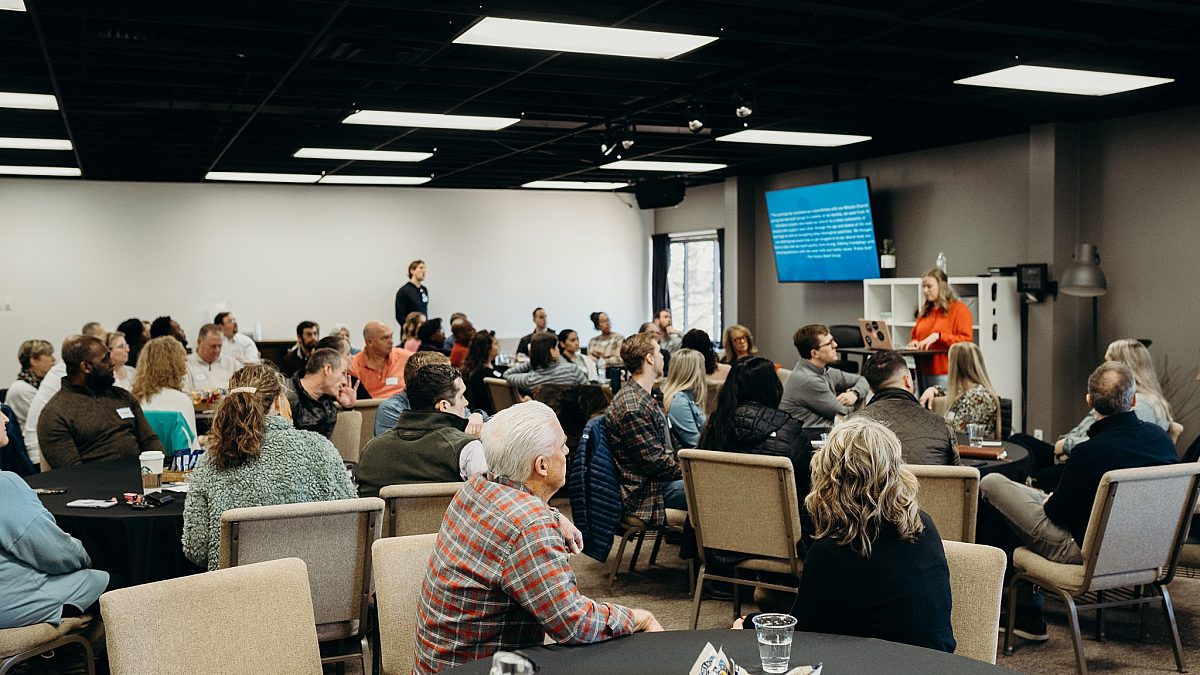Community at Mission Church

At Mission Church, we long for everyone to grow relationally, spiritually, and missionally in gospel-centered community. We do this by offering small groups and courses for you to step into. These are designed to be genuine environments that are gospel-centered and give honor to one another and to the Lord. Small groups are designed around age and stage of life while courses allow you to step into gospel-centered community around a specific subject for a specific length of time and provide an on ramp to long term community within a small group.

Connection Class
Please join us for the Connection Class to find or form a small group. You will receive an email with more details once you complete the registration.
This class will meet at 11am in room 214.
Upcoming Classes:
February 8 - age 18+ who are single, divorced, or widowed (with or without kids)
February 15 - age 18+ who are engaged or married (with or without kids)
April 19
We live in long-term networks of terminally casual relationships. No one really knows us beneath the well-crafted public displays, and because they don't know us, they cannot minister to us, because no one can minister to that which he does not know.
Paul David Tripp, New Morning Mercies
And let us consider how to stir up one another to love and good works, not neglecting to meet together, as is the habit of some, but encouraging one another, and all the more as you see the Day drawing near.
Hebrews 10:24-25
Beliefs about Gospel-Centered Community
Evidence for Community
In Scripture, we are clearly called to be in community (Hebrews 10:24-25). God Himself models community for us in the Trinity and invites us into community with Himself through the death, burial, resurrection, and ascension of Christ. Throughout Scripture, we see God starting with one man and expanding his community to reach the ends of the earth (Romans 8-10, Matthew 28:16-20). Acts 2 paints a clear picture of what the early church looked like and what characteristics marked the early believers. The Apostle Paul speaks, specifically, about community in his letter to the Galatians along with the authors of Hebrews and James (see above verses). We realize that the enemy loves to attack in isolation and that community is necessary to help the believer stand strong in the faith. Community can also be used evangelistically to draw non-believers into ultimate community with the Lord.
Elements of Grow
All groups should be marked by the Word of God (the Bible) and the Work of God (the Gospel). Groups should gather together with the ultimate goal of growing in an understanding of God’s Word and our gospel identity. Taking it a step further, we teach and share that identity as we spread the good news - the Work of God. Learning from and alongside one another is how God designed us as believers. We long to see every person grow relationally, spiritually, and missionally inside a group.
Spiritual Growth
We believe a key aspect of being a fully formed follower of Christ is to grow spiritually. We desire to see people further their understanding of what it means to be a gospel-centered disciple who gathers, grows, gives, and goes. Growing spiritually means both the acquisition of truth and the application of truth, and we believe that truth is only found in Scripture.
Relational Growth
Another key aspect of being a fully formed follower of Christ is to grow relationally. Relational growth requires consistency, which is a commitment that carries a cost of time, attention, and sometimes resources. Consistency creates a rhythm that allows for hospitality, authenticity, vulnerability, accountability, and the sharing of prayer requests.
Missional Growth
While groups are marked by spiritual and relational growth, they are inadequate without the third marker of missional growth. As believers, we are called to live outside of ourselves, carrying out the mission of our King. The response of a group growing spiritually and relationally is seeking opportunities to respond to the needs within the body and then the community around them.